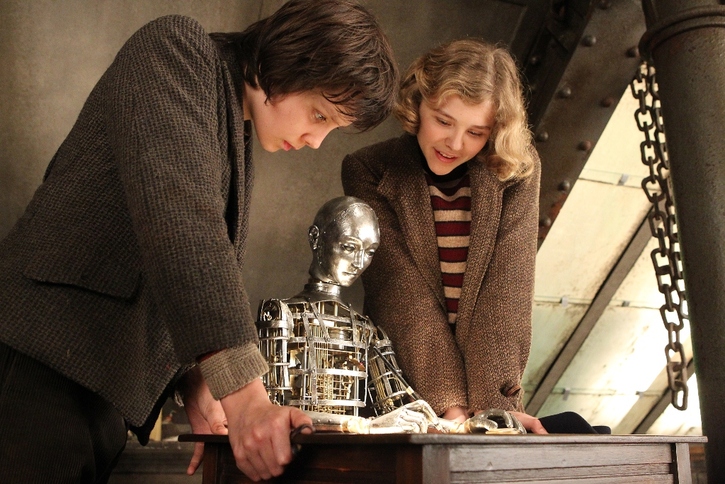 |
| Scorsese's Hugo |
From curioushairedgal's post
The Magic Thing: The Artist, The Book of Illusions and The Violence of the Image
Cinema was a visual language, a way of telling stories by projecting images onto a two-dimensional screen. The addition of sound and color had created the illusion of a third dimension, but at the same time it had robbed the images of their purity (...)
It struck me that I was witnessing a
dead art, a wholly defunct genre that would never be practiced again. And yet, for all the changes that had occurred since then, their work was as fresh and invigorating as it had been when first shown. That was because they had understood the language they were speaking.
They had invented the syntax of the eye, a grammar of pure kinesis, and except for the costumes and the cars and the quaint furniture in the background, none of it could possibly grow old. It was thought translated into action,
human will expressing itself through the human body, and therefore it was for all time(...) The flat screen was the world, and it existed in two dimensions. The third dimension was in our head. (Auster - The Book of Illusions, p.15)
 |
| Asa Butterfield and Chloe Moretz of Let me In |
love of the movies.
It is also a story of separation and death, connection, reparation and reconstruction.
Hugo has rescued an automaton. A museum fire has killed his father, who was carefully repairing this beautiful artifact. It is his only connection with his dead father, an invisible ribbon tying them together.
AS Eric Packer in Cosmopolis spends his last day to get a "haircut", traveling through New York City traffic to go to the barbershop his father went to, and where he got his haircut as a child. Another invisible ribbon tying him to his dead father.
 |
| Scorsese Directing Hugo |
Scorsese is tying himself to his own childhood, and his childhood love of movies and illusion that determined his future as an adult filmmaker.
As nikola ties herself with invisible ribbons to robsessed, tying herself to her dead father and Old Timey Hollywood.
And as someone I know ties himself to his dead father with baseball, DeLillo's book Underworld, because when he was a child his father took him to see DiMaggio play for the Yankees, and pointed out the great player in centerfield. An experience to become memory that is lost forever now with the advent of Moneyball, all illusion gone.
A long time ago I was reading psychoanalytic case studies of camp survivors of the Holocaust. One was with a woman who was a child with her mother at the selection platform. Her mother gave her a handkerchief (? some small thing) when she knew they would be separated. She never saw her mother again, but she held on to this "piece" of her mother. And she survived. The analysts have found that this "transitional object" was often the difference between life and death for the child's camp survival, and the ability to have developed a self as an adult.
Hugo is a philosophical statement about reality and illusion. Illusion wins hands down.
 |
| The Great Ben Kingsley with Asa Butterfield |
 |
| Sasha Baron Cohen in an Astonishing Performance |


















